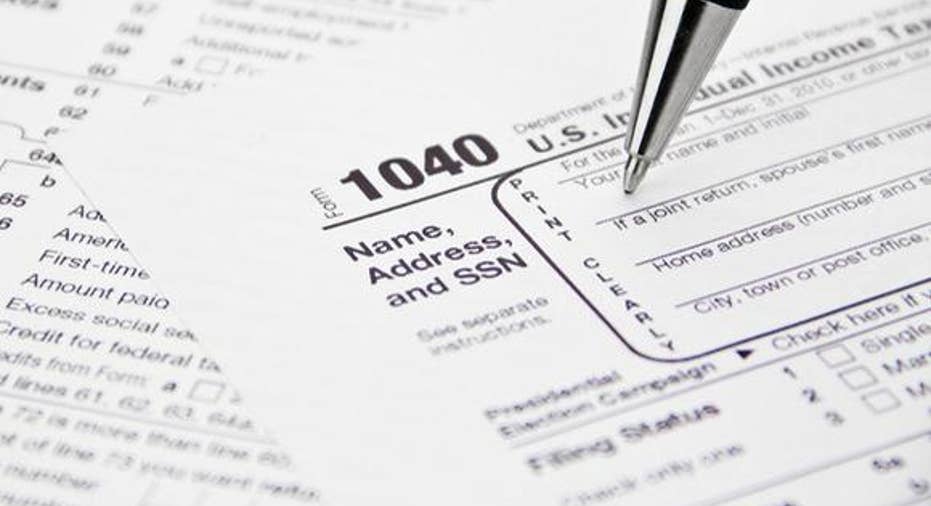This Mistake Makes You 20 Times More Likely to Mess Up Your Taxes

Image source: www.seniorliving.org.
According to the IRS, taxpayers who choose to file a paper tax return instead of e-filing are 20 times more likely to make an error. Although paper returns are less common than they used to be, millions of Americans still choose to file their returns the old-fashioned way. Here's what you need to know before filing a paper return, and some information on why it might be time to make the leap to e-filing.
Who still files a paper tax return?During the 2014 tax year (returns filed in 2015), about 21.5 million paper tax returns were files -- about 9% of the total. Although this is still a lot of people, paper returns have declined in popularity in recent years.
|
Year |
% of Paper Returns |
|---|---|
|
2015 |
9% |
|
2014 |
14% |
|
2013 |
15.3% |
|
2012 |
17.3% |
|
2011 |
22.8% |
|
2010 |
30.2% |
|
2009 |
32.8% |
Data source: www.efile.com.
Still, millions of people are still filing paper returns for a variety of reasons. Many of these are simpler tax returns, such as those filed with a 1040-EZ, and it seems easier to fill out one sheet of paper and mail it in than learning to use a new software program.
Others have no choice but to file paper returns -- for now. For example, if you have no taxable income, you can't e-file. Or, if you're filing before or after the e-filing window (January 15 until October 15), you'll have to mail in a paper return. And, if you're filing an amended return, it can only be done by mail. These restrictions may change in the future, but for now, these situations require a paper tax return.
What kind of errors are we talking about?The biggest difference between e-filing and filing a paper tax return is that the e-filing program you use will generally check for errors. For example, if you omit a digit from your Social Security number, or you add up deductions incorrectly, the program can catch things like that.
Obviously, there are some errors a computer program can't catch, such as misspellings. In my case, TurboTax would have no way of knowing that I spell my name "Matthew" and not "Mathew," so this error could slip through the cracks. Still, the following errors can often be avoided by e-filing, just to name a few:
- Wrong or missing Social Security numbers
- Mathematical errors
- Incorrect calculation of deductions or credits
- Numerical errors will usually be caught (such as typing in W-2 income as $4,000 when it should be $40,000 -- the rest of your calculations won't add up)
- Forgetting to sign and date the tax return
This is just a short list, but these errors are quite common among paper filers.
Why should we care about some simple errors?Avoiding errors is important for a couple of reasons. Most obviously, you want your tax return and/or tax refund to be as accurate as possible.
Errors are also a major trigger of IRS tax audits, which nobody needs to go through if it can be prevented. Now, not all audits can be avoided by e-filing. Some audits are prompted by other factors, such as higher-than-average deductions, small business losses, or by simply having high or low income. And, other audits are completely random.
However, keep in mind that the IRS gets a copy of all of your tax documents, so it knows what many of the numbers on your return should be. I think we can all agree that simple mathematical or typographical errors are a silly reason to put yourself through an audit.
If you must file a paper return, keep these things in mindIf you insist on filing a paper tax return in 2016, either because you have no other choice, or you don't feel like learning how to e-file, keep a few things in mind.
- First, follow the IRS's instructions carefully, especially when it comes to computing deductions and credits.
- Make sure your name and Social Security number are on every page.
- Double check your address.
- Check all of your calculations several times. Incorrect numbers are an easy way to attract negative attention from the IRS.
- Make sure all of the numbers you copied from tax documents (W-2s, etc.) are correct.
- Check that your bank information is accurate. An incorrect or illegible bank account number can delay your refund.
- Finally, be sure to mail your return to the correct IRS service center.
If you have a choice, e-filing is almost always betterFor the vast majority of people, e-filing is the safest, fastest, and most convenient possible way to file your tax return. And, thanks to the IRS's free file program, e-filing with name brand tax software is 100% free for the majority of taxpayers.
If you haven't e-filed a tax return yet, 2016 may finally be the right time to give it a shot.
The article This Mistake Makes You 20 Times More Likely to Mess Up Your Taxes originally appeared on Fool.com.
Try any of our Foolish newsletter services free for 30 days. We Fools may not all hold the same opinions, but we all believe that considering a diverse range of insights makes us better investors. The Motley Fool has a disclosure policy.
Copyright 1995 - 2016 The Motley Fool, LLC. All rights reserved. The Motley Fool has a disclosure policy.



















